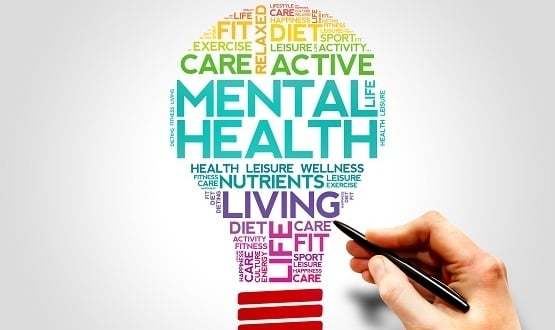How Stress Can Destroy Your Health!

Our body has a complex system for dealing with stress. You activate this system when you are in a state of stress because the body recognizes stress as a state of danger and it must survive to get out of it unscathed.This defence mechanism of the body, therefore, helps us maintain the balance of our body, thus increasing the chances of our survival!
Scientists have found that when we are in stressful situations, our body releases chemicals that help us survive, even if we are not in real danger. These chemicals wake us up and catch our attention. They mobilize our body’s fuel reserves resulting in an increase of our metabolic rate and stimulate a part of the brain that is involved in creating the feeling of fear. In ancient times, these changes in the body increased the chances of survival. In modern societies, however, they can cause heart disease, obesity and high blood pressure. But how exactly does stress make some people obese and can damage their health?
The body always tries to stay in balance. Athletes experience this when they train. When you increase the volume of your workout you stress your muscles and the muscles react to the stress which causes them to increase in size, so that they can cope with the load easier. The same thing happens when you are in danger. The defence system starts a series of chemical processes that help you survive. These include raising your blood pressure to help deliver fuel and oxygen to your cells, activating your nervous system to speed up your metabolism, improving your vision and increasing your muscle strength. It also stops processes, such as muscle and bone growth, that do not contribute to your immediate survival. The anti-stress system therefore serves us well in these life-threatening situations. However, in modern life, where stress can be permanent, this system can make us sick.

So in a state of stress – physical or emotional – our brain starts a series of steps to help us survive. First, it puts forward the nervous system to “activate” our body. This involves the release of hormones such as norepinephrine and epinephrine. It activates primitive brain centres, such as the amygdala and the peripheral system of the brain (brain sensory centre) that increase the feelings of being alert and fear. It also triggers the release of chemicals in the brain that cause your adrenal glands to produce a hormone called cortisol. (The adrenal glands are hormonal glands located above each kidney).
Cortisol is your body’s stress hormone. It guides the use of fuel to help your body survive stressful situations. It raises blood sugar levels, increases the production of blood sugar by the liver, breaks down protein for fuel, slows down the movement of amino acids in cells (especially muscle) and increases blood fat levels. It also reduces the immune system’s response to injury, which reduces inflammation. These procedures work great when you are experiencing sudden stress. However, when you are overwhelmed with emotional stress, these same processes can cause a lot of damage.

Body Fat and Stress.
Permanent stress causes high levels of cortisol in the blood. Cortisol can cause insulin resistance and increase blood insulin levels. High insulin levels raise blood pressure and promote the storage of fat in your abdomen – especially around your internal organs. High levels of insulin and cortisol also contribute to high blood pressure, blood clotting problems and bad fats in the blood (high cholesterol, triglycerides and low HDL – good cholesterol). All of these changes increase the risk of heart disease and other health problems, such as certain cancers and mental illness.The high levels of cortisol increase belly fat in two ways. First, by increasing the storage of fat in the abdomen. Second, by affecting the chemicals that stimulate the appetite. This second factor varies from person to person. Stress in some people reduces appetite that leads to weight loss, while in others it acts the opposite way, causing weight gain which results in an increase in body fat.
The scientists were confused by the cortisol-fat connection because people with increased belly fat usually had normal cortisol levels at rest. They then found that some people released higher levels of cortisol than others, when they were under stress. These people release high amounts of cortisol when they experience chronic stress, such as financial problems or problems in their personal relationships. People who released high levels of cortisol during stress had a significant amount of belly fat, even if they did not have much fat in the rest of their body.
Dealing with stress.
Research shows that people respond differently to stress. Some people experience stressful situations in a mild way, they do not seem to be affected by it and they do not activate the anti-stress system on their body. Others overreact to the slightest stress. Unfortunately, the latter also have health problems, more belly fat, difficulties with insulin metabolism, high blood pressure, high blood fats and blood clotting disorders. Thus, people with anxiety have an increased risk of heart disease and a shorter life expectancy.

Regular exercise is probably the best way to deal with stress because it fights chemical processes that destroy our health. Exercise improves insulin metabolism and reduces the cortisol that is released in stressful situations. Regular exercise can prevent insulin resistance, lower blood pressure, lower triglycerides and increase HDL (good cholesterol) and it can also reduce waist fat.

A good diet can also help. People who are under constant stress need to worry about the simple sugars in their diet. Eating foods with high levels of refined sugars – sweets, cakes, white bread and soda – increases insulin levels, which in turn contribute to the fat stored in your abdomen. Also, reducing saturated fats, found in certain meats and dairy products, will help reduce the devastating effects of stress.Finally, using stress management techniques will also help you deal with stressful situations. Stress is not necessarily bad, it is how you deal with stress that determines whether it helps you or hurts you. Scientists who specialize in fighting stress have some suggestions for reducing it:
Try to limit daily events that can cause you stress resulting in a permanent state of stress. For example, if you are bothered by phone calls from various promotion companies while working from home or resting, block the calls, turn off your cell phone, and do not answer it until your day is over.
Avoid people who annoy you. Although you can not always avoid your boss or someone from your close family environment, try as much as you can to reduce meeting with these people. Be creative and think of ways to reduce stressful conflicts. Some people are easy to deal with, but some others are very difficult to almost impossible!
Manage your time better. Poor time management is a major stress factor. Many people are busy, but how many of them use their time effectively? Focus on the things that matter. Do not become a shield for everyone’s problems.
Get organized. Are you wasting your time looking for your keys, your wallet or some other everyday item? Place them in the same place every day. Choose a specific location for your bills and important documents. Disorganization causes unnecessary stress and wastes time – time that should be better spent with friends, family and for exercise.
Improve your communication skills. Improper communication with your family, friends or colleagues is stressful. Examine the problem and think of ways to solve it.
Develop a personal support network. You should associate more with people who make you happy. They can help you deal with stress.
Try relaxation techniques. There are books, DVDs and websites for progressive relaxation and unwinding techniques. Try one of them. Or simply, lie down somewhere and read a book or listen to your favourite music. You owe some time to yourself, it is never too late to start.
In conclusion, I want to emphasize that the scientific community has long known that stress is not good for the human health. However, only in recent years they have discovered the reasons why this happens. Fortunately, there are many ways to help you deal with this scourge of modern society. Everything is in your hands. Managing your mind is clearly your own personal work to do!
It’s up to you!
Mitsaris Kostas
Certified Personal Trainer
Sport & fitness Nutritionist & Life coach
Founder of HISD Workout Method
Author “The well-being bible”
www.supertrainer.gr






